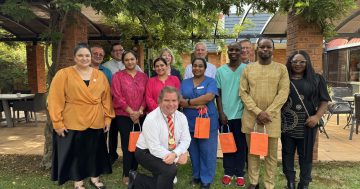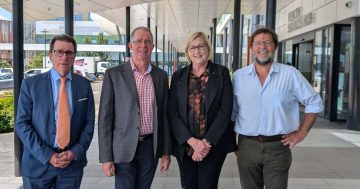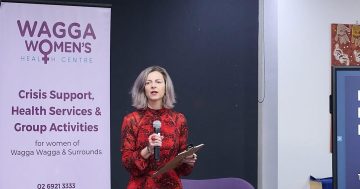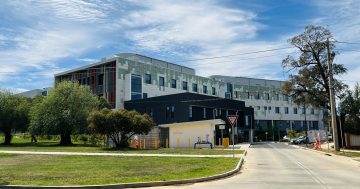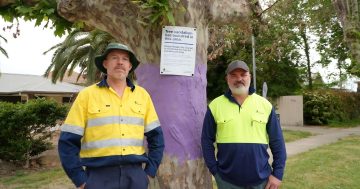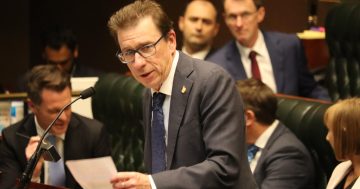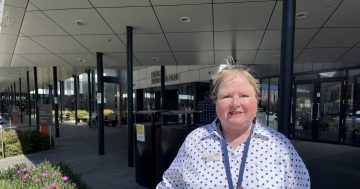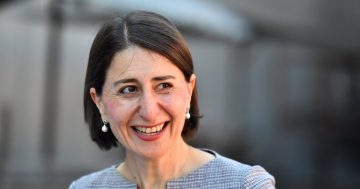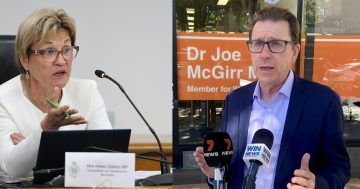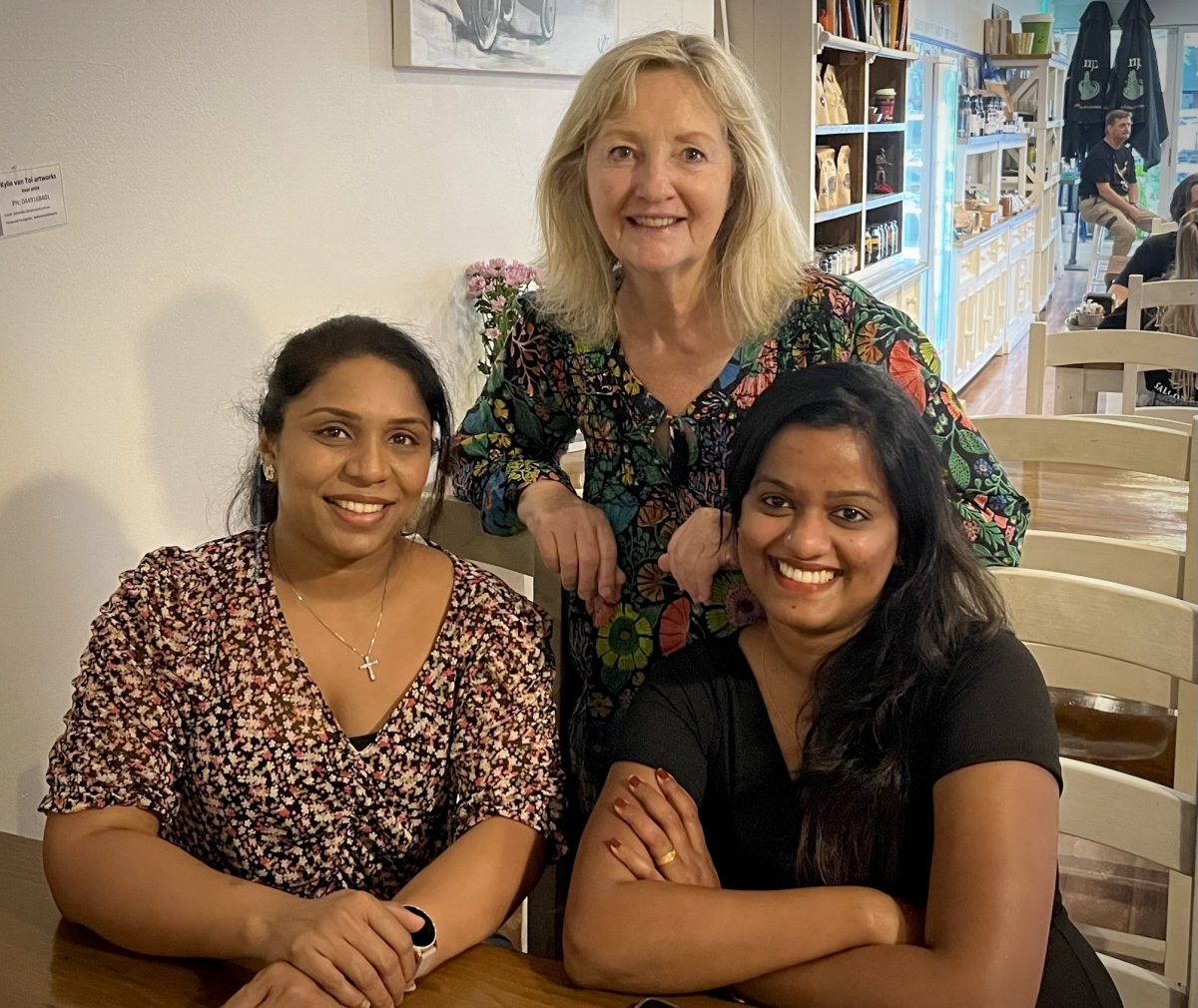
Fetzy Mathew, Deputy Mayor Jenny McKinnon and Sandra Scaria. Photo: Supplied.
Wagga nurse Sandra Scaria is finally feeling secure after years of uncertainty waiting for her application for permanent residency to be approved.
She is one of more than 20 families from India and Nepal who can now begin to settle in thanks to the support of the Wagga community.
“I can buy a house now, I can start my family and things like that because now I feel more secure,” Sandra said with a smile.
“There is a certainty now for how long I can be in this country and that makes me more happy than ever.”
Sandra moved to Australia from Kottayam in India in 2016 on a 457 skilled worker visa, obtained with the support of the Murrumbidgee Local Health District (MLHD).
After two years working as a registered nurse (RN) at Wagga Base Hospital, Sandra says she was disappointed to learn that her employer was unable to sponsor her for permanent residency.
“When they mentioned that they couldn’t support us, we were all really stuck,” Sandra said, explaining that she extended her stay for another two years with a skilled regional visa (489) before applying again for the 887 permanent residency visa.
But by 2019, the criteria to immigrate had become tougher and, despite an apparent push to settle more skilled migrants in regional centres, Sandra says the process ground to a halt.
“That’s when I got married and then COVID started. It was hard for my husband to come over to Australia,” she said.
“We were separated for nearly two years after our marriage.”
After more than five years of uncertainty, stress and mounting expenses, Sandra decided she needed to “escalate”.
Fetzy Mathew works as a clinical nurse specialist at Calvary Hospital and is a well-known advocate for Wagga’s multicultural community after running for council two years ago.
She said the Riverina was at risk of losing healthcare workers if they were not supported.
“If you’re not a resident of a place, everything is at stake,” she said.
“Simple things like Medicare, buying a house, planning a family and thinking of a future and settling down in Wagga.
“If healthcare workers are not supported, there are many other opportunities in other states where they can easily move on to and we don’t want to lose that expertise.”
Fetzy reached out to members of Wagga City Council, and Deputy Mayor Jenny McKinnon responded.
“Once I met Sandra and heard her story, I learned that this was not just an individual case,” Cr McKinnon said.
“There were actually around 20 people in the local health district who were skilled migrant workers who had come to Australia because they were told that they could be supported to get their permanent residency.
“I just felt like something needs to happen because we have a short circuit somewhere here!”
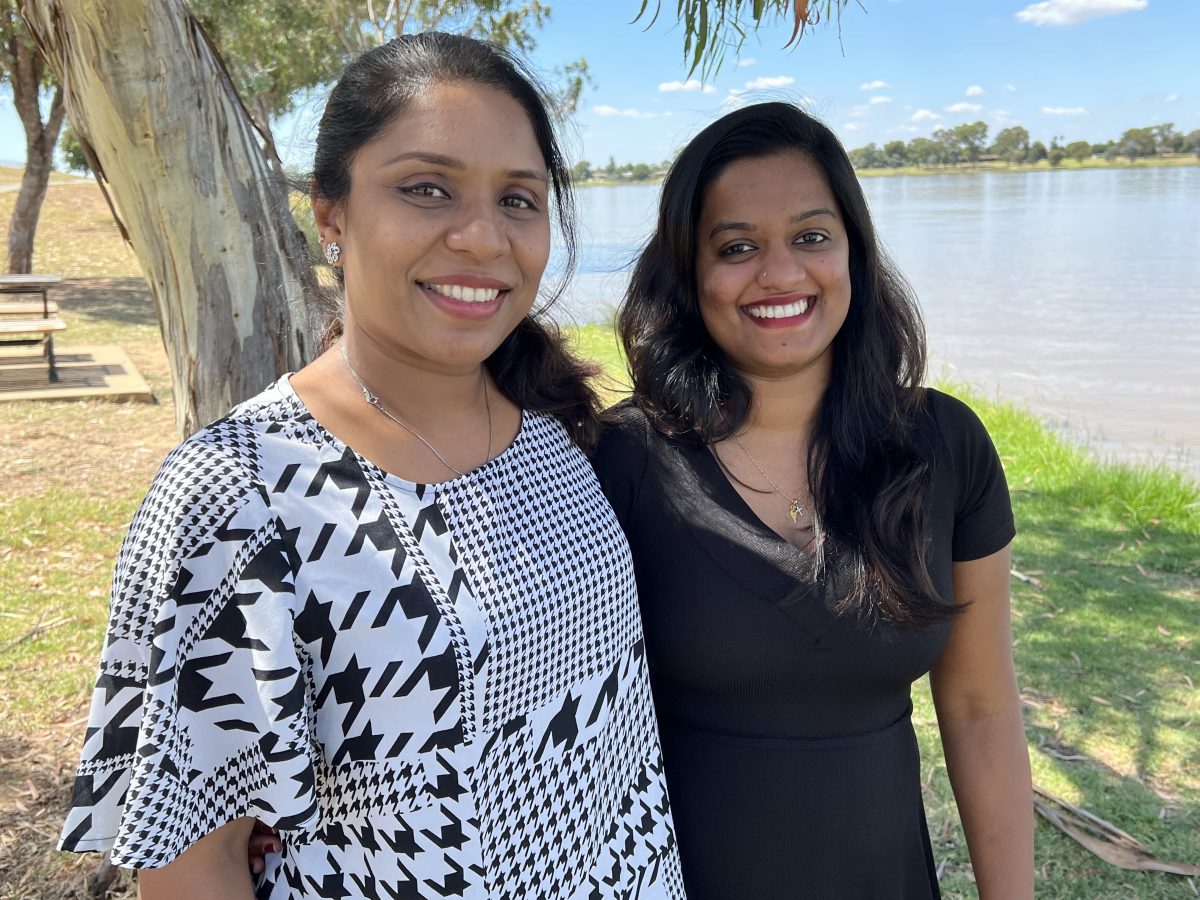
Sandra (right) says life in Australia can begin thanks to support from people like Fetzy (left). Photo: Chris Roe.
With Mayor Dallas Tout, they raised the issue with state MP Dr Joe McGirr, who drafted a letter to the Commonwealth Department of Home Affairs and MLHD, who acted quickly to resolve the situation.
“We’ve had a situation here where, because of immigration delays, we’ve had overseas-trained nurses working full time at the hospital for six years and still on visas,” Dr McGirr said.
“That’s just not the Australian way. That’s not how we treat people.”
He said it was a great community effort as the hospital, the Nurses Association and all levels of government worked together to ensure security for the nurses.
An MLHD spokesperson said they valued their overseas-trained staff and continued to “sponsor direct-entry visas and have visa pathways for applicants”.
While they did not comment directly on Sandra’s situation or that of the 20 families that have now emerged from visa limbo, they offered a broad statement.
“Murrumbidgee Local Health District sponsors candidates on temporary visas; and permanent sponsorship may be considered where appropriate. Our employees may seek independent permanent residency, and in these cases, Murrumbidgee LHD has no involvement. Employees with independent permanent residency are not tied to an employer.”
For Sandra, her future in Australia is secure and she hopes that by speaking up and sharing her story, it will become easier for others in the future.
“While my situation was a bit different to the other 20 families, I hope it’s better for all those people who are eligible yet struggling for a visa,” she said.
“I’m just so happy for all the support from Jenny and Dallas and Dr McGirr and MLHD for helping us.”







